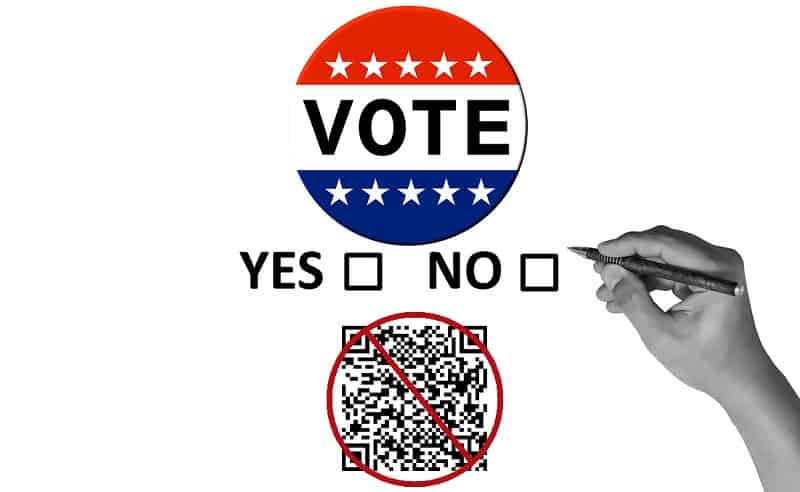Cybersecurity concerns were the reason given for the ban.
On September 16, 2019, Colorado became the first American state to put a QR code ballot ban in place. The state once used the quick response codes to help tabulate votes. However, concerns of cybersecurity issues led to the decision to ban the use of the unique 2-D barcodes on ballots.
Officials say that QR codes can potentially be changed by hackers.
Prior to the QR code ballot ban, residents in Colorado made their selections on a ballot-marking device. This device then prints a physical ballot that includes a read-out for the voter to verify their choices as well as a QR code embedded with their choices.
From there, votes are tabulated by a machine that scans the QR codes. Officials say that its possible for these codes to be changed by hackers and be different than the voter’s true choices.
After announcing the change, Colorado Secretary of State Jena Griswold (D) said that cybersecurity experts have voiced concerns around the security of using the QR codes on ballots, reports The Hill.
Additionally, Griswold further stated that another reason to enhance cybersecurity of elections is due to findings by U.S. intelligence that Russian operatives attempted to interfere in the 2016 presidential election.
The QR code ballot ban will mean votes will now be counted based on human-verifiable information.
Going forward, Colorado will require that votes be counted based only on human-verifiable information, which means only counting the marked ovals on the printed ballot. Votes will no longer be tabulated based on information embedded in QR codes.
“I am proud that Colorado continues to lead the nation in election cybersecurity. Voters should have the utmost confidence that their vote will count,” Griswold said in a statement, as quoted by The Hill.
“Removing QR codes from ballots will enable voters to see for themselves that their ballots are correct and helps guard against cyber meddling.”
“Our adversaries are not standing still, and neither can we,” Griswold added.
 It will be interesting to see if other states follow suit and also enact their own QR code ballot ban policies as the election draws nearer.
It will be interesting to see if other states follow suit and also enact their own QR code ballot ban policies as the election draws nearer.
